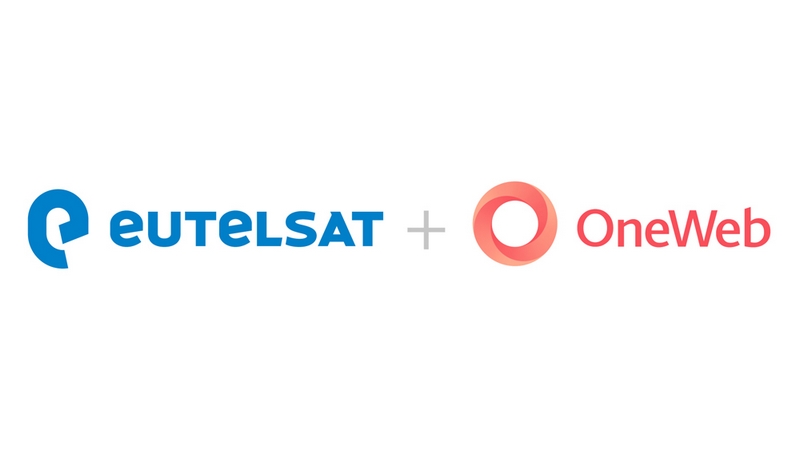Eutelsat Group, new global giant of satellite internet


This Thursday, September 28 will be a landmark in the conquest of the spatial internet. The shareholders of Eutelsat, convened at the headquarters of the leading European satellite operator, approved the acquisition of the British OneWeb for an amount estimated at 3.4 billion euros. This green light gives birth to the world number two in satellite connectivity behind the American Starlink, a subsidiary of SpaceX. Called the Eutelsat Group, the new set aims for a turnover of around 2 billion euros in 2027.
The resilience of the multi-orbit
The formalization of this merger ends a long episode, which began in July 2022 with the signing of a memorandum of understanding. On paper, the rapprochement of the two operators makes sense by the complementarity of the two actors. Established under French law in 1977, Eutelsat has put into orbit a fleet of 39 geostationary satellites (GEO), at an altitude of 36,000 km, covering Europe, Africa, Asia and America.
For its part, OneWeb has chosen to deploy a constellation of some 618 satellites in low orbit (LEO), i.e. at an altitude of a few hundred kilometers. This positioning allows it, like the rival Starlink, to provide high-speed and low-latency communications services at an affordable price.
The entry of Eutelsat into OneWeb’s capital in April 2021 has already made it possible to develop new bundled services combining GEO/LEO hybrid solutions. « A multi-orbit communications plan guarantees the end user primary, secondary, backup and emergency connectivity in the event of disruption or unavailability of a given network, whatever the reason”, explains Eutelsat.
A $16 billion market in 2030
The rapprochement of the two operators will make it possible to go much further. Beyond the expected cost reductions – more than 1.5 billion euros in synergies in the long term – the pooling of resources will promote future investments. It will be a question of completing the deployment of OneWeb’s Gen 1 satellite fleet and starting the development of the so-called second generation constellation (Gen 2), expected as early as 2025.
Above all, it is a question of registering on the very fast-growing market of satellite internet. A market that, according to Eutelsat, is expected to more than triple in value, from $4.3 billion to $16 billion in 2030. The share of non-geostationary satellites is expected to grow about two and a half times faster to represent almost half of this market, still by 2030.
Satellite connectivity makes it possible to fill in the blank areas, in the open, in the assembly or in the open sea, which are not covered by wired networks (optical fiber, cable, ASDL) or non-wired (4G, 5G, THD Radio). With its first generation of satellites, OneWeb claims download speeds of up to 195 Mbps for an average global latency of 70 ms.
Occupy space in front of Starlink and Kuiper
It is also a question of cutting the grass under the foot at Starlink. Owned by the multi-billionaire Elon Musk, the operator is, for the moment, racing ahead in the Star Wars. Due to a launch of SpaceX’s Falcon 9 rocket every four days, it has already built up a constellation of 5,000 satellites and plans to deploy about 30,000 more.
We will also have to rely on Kuiper from Amazon. Clearly lagging behind, the latter will be tempted to double down. The first two demonstration satellites of its constellation should be launched in early October. Vodafone has already announced that it will work with Kuiper, to expand the reach of its 4G and 5G networks in Europe and Africa.
In this battle, Eutelstat Group will be able to capitalize on OneWeb’s anchoring in the world of companies, government authorities, aviation and maritime. According to a press release dated last October, OneWeb’s turnover should reach 50 million euros during the 2023 financial year, 150 to 250 million in 2024, 300 to 500 million euros in 2025 and exceed 600 million euros in 2027.
The new group will also retain Eutelsat’s historical television and video broadcasting activities while providing “ new native IP video services, located at the confluence of broadband and television broadcasting”.
In terms of governance, the Eutelsat Group, which will retain its headquarters in Paris, will be placed under the direction of the Danish Eva Berneke, chief executive officer of Eutelsat since January 1, 2022. His counterpart at OneWeb, Neil Masterson, “ will continue its mission until the end of the year in order to ensure the successful integration of the two companies. »








